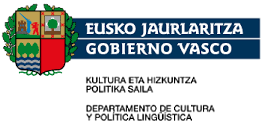Dokumentuaren akzioak
'Udaleku' makes its return to Elko
Udaleku is taking place in Elko for the first time since 2006. The event is sponsored by the North American Basque Organizations, and the Elko Euzkaldunak club is hosting the event.
The event is hosted by a different Basque club every year. The camp location rotates between California sites in San Francisco, Bakersfield, and Chino. Other out-of-state locations include Boise, Idaho and Buffalo, Wyoming. The two Nevada host cities are Reno and Elko. Udaleku has been in existence since 1974. San Francisco is the location of the 2015 camp.
Camp director Teresa Franzoia said, “Elko hosts Udaleku every six to eight years. Housing in Elko isn’t as abundant right now as in other areas, but we actually took in more kids than we expected.”
Franzoia knows a great deal about Udaleku. She has attended the camp twice herself.
Classes taught at Udaleku are dance, language (euskara), culture, mus, txistu (flute), pandero (tambourine) makila, and pala. “Mus” is the most played version of card game in Spain. “Makilas” are walking sticks and were also used as fighting sticks. “Makilas” are important staples of Basque culture. “Pala” is essentially the Basque form of racquetball.
Elko native Bob Echeverria taught the children how to whittle their own makilas out of large willow branches. The students will use the makilas they create during the camp’s final performance on July 4.
“These willows are tough to carve on. They are really dry,” said Echeverria.
Jexux Larre and his son, Martin, are the dance instructors of the camp. They are from San Sebastian, Spain, and are in their fifth Udaleku as dance instructors.
Eneko Espino hails from the Basque country. He and Elko native Bernadette Leonis taught the children of the camp how to read musical notes and play the “txistu.” The “txistu” is virtually the Basque equivalent of the flute.
Udaleku has been in existence long enough now that most people interested in the camp know that information can be found on the N.A.B.O. website. Udaleku is an annual event.
Franzoia said, “The camp information is mostly spread by word-of-mouth. You can learn more about it on the website too.”
The children of the camp will perform just before the kickoff party of the 51st annual Elko Basque Festival, which runs from July 4-6. The performance and the kickoff party will take place at the Elko Basque Clubhouse. The youths will also walk in the festival’s parade and perform at the Elko County Fairgrounds.

Dokumentuaren akzioak






